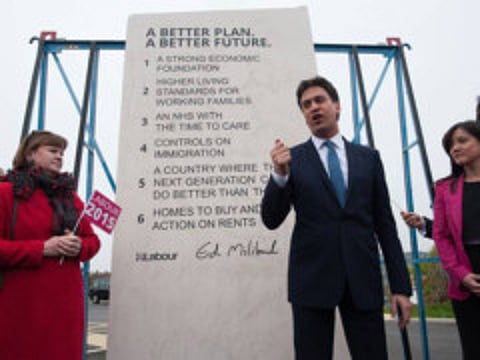Britain faces deep and damaging uncertainty
Cameron and Miliband will be looking to a combination of the smaller parties

Dubai: As the final vote approaches, Britain faces an extended period of deep and damaging uncertainty as the new coalition works as a fragile minority government because it is not clear that any likely combination of parties will be able to form a coalition with a clear majority.
This will be in stark contrast to the outgoing coalition when two parties (Conservative and Liberal Democrat) had both the will and the numbers to form a majority government and offer the country desperately needed certainty in the chaos of the economic meltdown of 2010.
The challenge is that neither the Conservatives nor Labour want to work with the Scottish Nationalists who are set to be the third largest party by a long way. If they did work together they could repeat the 2010 formula of a majority government but neither of the big parties wants to take the risk of allying with the Nationalists.
Therefore, Cameron and Miliband will be looking to a combination of the smaller parties with which to form their government, which may not be enough to get to the magic 326 that gives an overall majority. That means that 45 to 55 SNP MPs will be looming over the minority government with the ability to vote down whatever legislation they may dislike.
The SNP are more socialist in spirit than capitalist, so they may find it easier to give support to a Labour-led coalition that excludes them. But if — as may be more likely — the Conservatives lead the government, they will be continuously hampered by the SNP. Nothing like this has happened in British politics since the late 1880s when Charles Stuart Parnell led the Irish demand for autonomy through the Home Rule League and its successor the Irish Parliamentary Party and took control of Westminster. It dominated policymaking on many fronts and when it held the balance of power it forced Gladstone and his successors such as Asquith and Lloyd George to introduce a succession of four home rule bills between 1886 and 1920.
After the bitter fight over the Scottish referendum the SNP will not able to ask for home rule, but it may start to manoeuvre for the next best thing: fiscal autonomy. The Scottish Nationalists may well also take a vicious view of continued Tory cuts and intervene to vote against a Conservative minority government, which is a money matter and so by Westminster convention would force a vote of confidence. Or the SNP may well oppose any Ukip dominated drive to leave the European Union which would also give grave embarrassment to Cameron.
This miserable prospect may offer an opening to Miliband to work out some kind of deal with the Scottish on the basis that they can work together to wreck the Tory cuts. Miliband has said repeatedly that he will not work with the SNP but the horror of minority government may force him to change his mind. If he does, Britain might head smartly back to 1970s socialism, as Cameron has never ceased to point out all month.
Sign up for the Daily Briefing
Get the latest news and updates straight to your inbox



